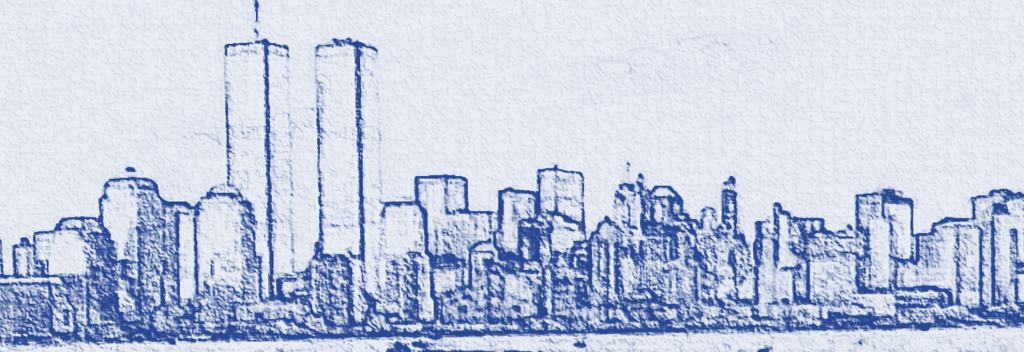Where were you that day?
I was in Los Angeles, three thousand miles away and three hours behind, but the distance in space and time collapsed that morning. After our son and daughter had already left for their respective schools, my wife and I got word that something inexplicable was happening in New York City. By the time we turned on our TV, both towers of the World Trade Center were billowing smoke, the Pentagon had been hit as well, and it was clear this was a coordinated attack unlike any other. Just before 7:00 AM our time, the South Tower collapsed right before our eyes. About a half hour later, the North Tower went down. And then the rumors started.
There were still hundreds of planes in the air. Any plane might be turned into a missile. Nobody was safe, even thousands of miles away from the devastation on the East Coast. Despite assurances from their schools that our children were safest where they were, we hustled them home as fast as we could. And then, like millions of others, we spent the rest of the day frozen in front of the television, horrified but unable to look away, and struggling to understand what was happening.
In the ensuing days and weeks, I noticed a change in my interactions with strangers whom I passed on the street or stood behind in line at the supermarket. We would catch eyes momentarily, and without speaking a word, an understanding passed between us. We had all seen it. We had all felt (and were still feeling) the shock of it. Even the mundane act of waiting in a crowd for an elevator was suddenly charged with emotion. You just knew what everyone was thinking: What about those people who waited for an elevator that never came? What about the loved ones they left behind? But along with the horror and sadness, we were feeling something else, and perhaps you felt it, too: a sense of connection borne of shared trauma. We were all in the same story.
Extraordinary things can happen when millions of people feel connected by a single narrative. They can march for justice. They can also march into war, which was the direction that the Bush Administration chose to lead us in the aftermath of 9/11. Stories are neither inherently good nor evil, but I would submit that they remain unparalleled when it comes to bringing people together and moving them towards action. Human beings have literally evolved as a species that relies on stories to understand how the world works, how to survive, and how to thrive. When we all agree on the same stories, we pull together and form tribes, religions, and nations.
And yet, these rare, all-encompassing stories can also be volatile, quickly mutating and dividing into conflicting stories that tear us apart. Certainly, this is one of the major lessons of the coronavirus pandemic. Think back to March 2020 when reports of the virus started to accelerate until suddenly every aspect of daily life came to a crashing halt. I remember standing in line outside my local supermarket waiting to buy toilet paper, again catching eyes with strangers, but this time because it was the only part of their face that wasn’t covered by a mask. Once again, we were able to communicate without words because we were all in the same story. But not for long.
Within a few months (if not weeks), the simple act of wearing a mask divided into two stories. One was about protecting your health and the health of people around you. And the other was about succumbing to government interference and yielding personal freedoms. Once again, we witnessed how powerfully stories can unite groups of humans, but tragically in this case, into warring tribes within one nation.
So, on this 20th anniversary of 9/11, as we all remember how we felt and consider what we’ve learned, I hope you’ll also take a moment to consider the unequaled potential of stories to unite your audience, advance your mission, and make the world a better place. Your work is too important to use anything less.
